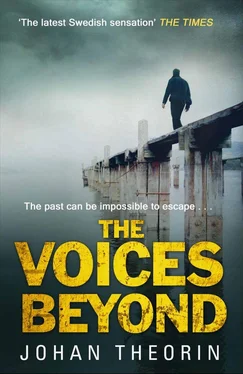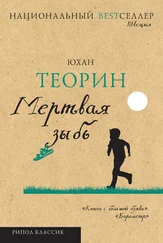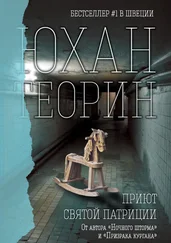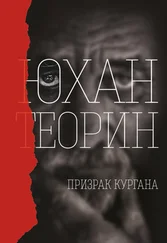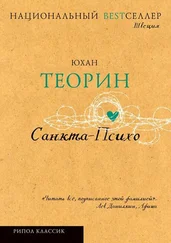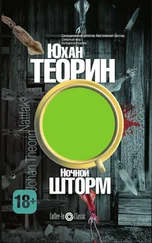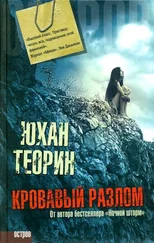Vlad’s new commanding officer at Kresty has survived for several months in his post. His name is Karrek, and he is a hard-bitten old soldier from the First World War. Major Karrek doesn’t say much, but he always carries a little notebook with him. It is said that he jots down any rumours about his men. Karrek continues to administer the ultimate punishment under the law down in the cellar, often by his own hand.
Trucks trundle away every night, transporting the bodies to a military area outside the city. Vlad has heard that enormous excavators are needed to dig mass graves big enough to accommodate all the corpses.
To think that there were so many enemies, so many traitors.
Vlad is certain that no one suspects him of being a Trotskyite, or an imperialist, or any other kind of traitor to his country. He is loyal to Stalin, to the Party and to his commanding officer; he is no enemy of the state.
He is clean.
And yet. The fear and the doubts are there when he goes to bed, and the walls press in around him. What is Karrek writing down in his notebook? Vlad is terrified of turning up at work one day and being met by evasive glances, by the realization that no one is calling him ‘Comrade’ any longer. After all, he was once a foreigner, and sometimes he isn’t completely convinced that he is not a spy.
He remembers his friend Vladimir, and the question he asked up in the north when Aron said he wasn’t a spy: ‘Are you sure?’
Is he? Aron sees what goes on in the cellar, he notices and remembers everything — doesn’t that make him a kind of spy? Perhaps he is spying for some foreign power that has yet to get in touch with him. If Sven was a spy, perhaps Sven’s secret plan was to place Aron in the Party, so that other agents would be able to contact him later.
These dark thoughts always come at night, when he is lying in his bed. He sees bloody faces floating in the darkness, he listens for the sound of knocking. He waits for the sound of a car stopping outside the building, for footsteps hurrying up the stairs. Loud banging on the door, like knuckles against a coffin lid.
There are sometimes footsteps in the stairwell, but so far no one has come to his door.
What can Aron do, while he waits?
Nothing. He just has to let Vlad get on with his work. Day and night, nothing but work.
On 4 May 1940, Vlad is called into Karrek’s office. The major is sitting at his desk with his notebook in front of him. He gives a brief nod.
‘Come forward, Jegerov.’
Vlad steps up to the desk. He notices a bowl of pickled gherkins, but Karrek doesn’t offer him any. He merely leans back and studies Vlad. ‘How are you?’ he says.
‘Very well, Major.’
Karrek adjusts his cufflinks. ‘I have been called to Moscow to serve in Lubyanka Prison. I am to take over as the commandant. It is a great honour. I need to take a number of men with me, and I have selected the very best.’
At first, Vlad doesn’t understand, but then he stands to attention.
Three months later, Major Karrek is transferred to Moscow. He takes Vlad and two others with him to the capital.
They arrive in a city where a certain air of calm has descended after all the trials and purges. There is far less suspicion, and everyone seems relieved that the threat of war has been removed, now that the Soviet Union and Nazi Germany have become allies.
Perhaps the future has arrived, Vlad thinks. At long last.
The summer of 1941 is scorching. Aron finds it oppressive, as if a thunderstorm is coming. And the storm breaks at midsummer.
On 22 June, Hitler invades the Soviet Union in a lightning attack that sweeps aside all opposition. Polikarpov aircraft are shot down by swarms of Messerschmitts. German Panzer divisions advance across the wheatfields of the Ukraine.
The railway line between Leningrad and Moscow is cut on 21 August. Kiev falls on 26 September.
Aron cannot go home to Sweden now, not even if he is granted safe conduct by Stalin himself.
He is trapped in a country where, for the first time, everyone is affected by the war. There is no bread. Sugar is rationed, so is soap.
A quarter of the population joins the Red Army, but they are unable to drive back the fascists. During 1941 alone, the Soviet Union loses almost three million soldiers.
At the end of October, the Germans are outside Moscow. Kalinin in the north and Kaluga in the south have already fallen. Shops and abandoned apartments are looted. Moscow’s sixteen bridges and Stalin’s dachas are mined. Stalin himself prepares to leave Moscow, but on 18 October he eventually decides to stay and sleep on an underground train.
General Zhukov assures him that the city can be held.
The NKVD is given free rein to execute deserters and workers who attempt to flee. Vlad is one of those operating out in the streets, just behind the fortifications.
The German army stops to rest and to prepare the final onslaught on Moscow, which is a mistake. Four hundred thousand well-rested Soviet troops, together with a thousand tanks and a thousand planes are on their way from the Far East on special trains. They arrive at the end of October, and gather outside Moscow.
At the beginning of November, Stalin holds a military parade in the besieged city in order to stiffen the resolve of his people and to boost morale. Vlad helps to carry chairs from the Bolshoi Theatre for members of the Politburo. He hears the leader give an inspiring speech about the defence of the mother country, with music provided by the NKVD ensemble.
That night, the temperature drops to arctic levels as if to order, and in the middle of November Zhukov launches a counter-attack. On 5 December, the Red Army manages to stop the progress of the Germans.
Slowly, the war turns for the Soviet Union, but the cost is incalculable. Over eight million Soviet troops perish in the conflict. In addition, almost ten million civilians die of starvation or in Nazi massacres.
The NKVD is reorganized after the war. The prison service is placed under the jurisdiction of the Ministry of Internal Affairs, the MVD, while counter-espionage and the hunt for class enemies becomes the remit of the Ministry for State Security, the KGB. Vlad moves to the KGB.
Moscow gradually begins to thaw out after the winters endured during the war; there is more food, and people have more time to enjoy themselves. Vlad has been living in the same small apartment for five years now, in a block for employees of the state. There is a communal bathroom, but he has his own kitchen. He is not well paid but has been able to buy himself a car after the war, a brown Pobeda. He goes on several outings, but never to the north. Never to the place where the old camps lay.
When he has a free evening, he sometimes goes to the Bolshoi. He chooses the cheapest seats right at the back, and watches a play or a ballet.
Vlad often has to work at night, long shifts of twelve hours or more at the prison on Lubyanka Square. In recent years, a dirty stream from the great flood of the war has poured into Moscow’s prisons: defeated officers, German scientists, Russians who allied themselves with Hitler, rebels from the Baltic states, diplomats who have been arrested and even more prisoners of war. They must all be interrogated, categorized, weighed and measured.
‘Where exactly on the Eastern Front did you serve?’
‘What kind of rocket boosters were you testing?’
‘Are you prepared to work for us now?’
The cells fill up. The anxiety grows. Sometimes, in the mornings, the prisoners throw out a lifeless body when the door is opened. It might be a suicide, or an informant who has been beaten to death. Sometimes, the prisoners throw out their food as well, if they are on hunger strike. There are force-feeding procedures. Aron and another guard push two tubes up the prisoner’s nose, then start pumping in milk. The prisoner can choose whether to suffocate or swallow. They all choose to swallow.
Читать дальше
